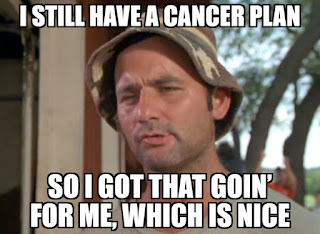I am very comfortable working in the group benefits market. Helping people who work for large companies, school systems and municipalities has been part of my world for nearly 20 years now, and making sure they have the right benefits is a task I welcome.
At the same time, I focus the majority of my efforts toward those people who don't have a large corporate employer. As a 1099 contract employee, I realize that it is up to me to find my own affordable benefits that will help me and my family in the event I should get sick or hurt, or worse, die. That is why I enjoy helping other business owners, entrepreneurs, sales professionals and the otherwise self-employed get the coverages they need.
There are a few differences in the types of products available. Those large group products have less underwriting, and in some cases no underwriting. "Guaranteed issue" means that the insurance will cover a person with no questions (except tobacco usage). "Simplified issue" is another option, which means there may be just a few health questions. Those "knockout questions" will decide whether or not a policy gets issued. One "yes" can do you in.
But policies that are issued on a guaranteed or simplified issue basis typically take on more risk, and that risk is passed on to the employee of the group in the form of higher premiums. One of the tricks agents us when selling in the group insurance field is to quote the premium based on pay frequency. If you are paid weekly, $10 each week sounds a lot better than $45 each month.
For the rest of us, having to find coverages that aren't deducted from our checks can be overwhelming and daunting. It doesn't have to be that way though. Use a couple of our tools and watch our product videos to see what is available and how these products work.
Let's look at a few of these insurance products.- Life insurance. We suggest that you take a look at affordable term life insurance while you're working, but maybe also get a small permanent policy for final expenses. For our younger clients we offer a term life insurance policy that will carry them out to age 65! And there is no medical exam* for policies under $250,000.
- Individual Disability insurance. This should be called "paycheck insurance", because that is the purpose of this policy. When trying to determine how much coverage you should apply for, I suggest the "H.U.G." method by figuring out much monthly expenditures are for housing, utilities and groceries. (Note: individual disability policies generally don't cover maternity unless the doctor deems it necessary during the pregnancy.)
- Business Overhead Expense insurance. This is another version of the previously mentioned Disability insurance, but the benefits cover the bills of your business, not your personal bills. If you rent an office, have utility and payroll expenses, this plan gives you the time to think your options over if you get sick or hurt and are not able to work. You may recover, retire or sell the business, but you won't be rushed into a decision.
- Cancer insurance. I have found that when working with large groups of employees, cancer plans are popular through word of mouth. If one employee is diagnosed the other staff members realize how expensive the out-of-pocket costs are. We have a couple of different options for cancer insurance, one being a traditional reimbursement plan, as well as a lump-sump plan. Both can cover deductibles and co-pays and offer a wellness benefit. (One of our plans also covers several other diseases as well, like meningitis and tuberculosis.)
- Cancer, heart attack and stroke insurance. These plans give you the option to choose if you want coverage for one, two or three types of illnesses.
- Accident insurance. Coverage for any type of accident, from cutting your hand and needing a few stitches to serious automobile wrecks. As long as you get some medical attention these plans pay a benefit. Great for active people or if you have kids who play sports.
*Medical records will be requested and may result in some clients needing an exam.
Chris Castanes is the president of Surf Financial Brokers, helping people find affordable life and disability insurance coverage. He's also is a professional speaker helping sales people be more productive and efficient and has spoken to professional and civic organizations throughout the Southeast. And please subscribe to this blog! Thanks!




